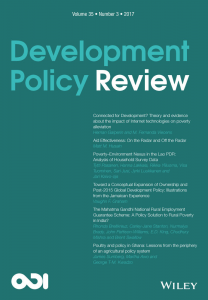Wikipedia Zero: Socializing Knowledge, but Threatening Net Neutrality?

Image by Omaranabulsi
https://commons.wikimedia.org/wiki/File:Nairobi_-_Wikipedia_Zero_-_258A0439.jpg
I visited Nepal earlier this year. It was my first visit since three years earlier and I was completely taken aback by just how many people appeared to own a smartphone: even in remote areas of the country that are some of the least developed regions of the world. Upon some research, my suspicions that mobile devices are the fastest spreading technology in developing countries were confirmed. I did wonder the extent to which cell phones can be useful in aiding development, in that most people used it for simple talking and texting functions. Data, while available, is ridiculously expensive for a nation with a GDP of just less than 20 billion dollars.
So imagine my surprise when I read around 20 Wikipedia articles on my phone only to discover that not a single rupee had been deducted from my pre-paid account for this activity. That is how I learned about Wikipedia Zero: an initiative by the Wikimedia Foundation to provide information free of cost to mobile users in the Global South. Launched in 35 countries so far, the initiative’s official claim is: “We created Wikipedia Zero so that everyone can access all the free knowledge on Wikipedia, even if they can’t afford the mobile data charges.” So in principle, it sounds like a positive philanthropic effort to make a wide-range of information available to those who cannot otherwise afford it. Why would anyone be opposed to this idea?
Well, it happens to cross paths with some of the greater current concerns of the Global North: paying mobile carriers more money to provide a particular internet service at a different rate than all other services seems to tread on violating Net Neutrality. Currently in the United States, Net Neutrality is a topic of grave concern to many, especially given that the FCC will finally be voting on this issue on February 26, 2015. While the concerns are completely valid within the context of opposing the loss of Internet freedom due to corporate monopoly of cable companies in the U.S., they lose value when applied to a context in which people in developing countries receive tangible intellectual benefits from the supposed violation. Unfortunately, the concerns are grave enough that certain governments have begun to take notice. In May 2014, the government of Chile deemed Wikipedia Zero, and similar services by Facebook and Google, illegal.
And the ruling almost makes sense for Facebook and Google; both are corporations serving some kind of a for-profit agenda. Fighting against corporate giants profiting from varying Internet surcharges is in line with the spirit of protecting Net Neutrality. Wikipedia, on the other hand, is a Non-Profit Organization that is run almost entirely by the masses: its servers are paid for by public donations and the average user creates majority of the content. Information from a single source can be dangerous, and since Wikipedia is the only online encyclopedia available for free in these countries, some opponents argue that the free knowledge it is providing can be biased. Perhaps it is – to the extent that any information online is biased – but not necessarily a political or corporate bias. Every article might represent the bias of each of its contributor, and inaccuracies all over the site are famously common. However, are those critiques strong enough when observing from a global scale with regards to how inaccessible information generally is in parts of the Global South?
Or considering how the initiative has led to the site representing voices that would otherwise never be heard of by global mainstream media? For example, to Ram Prasad Joshi writing from the Western Hills of Nepal, where electricity isn’t an everyday occurrence, Wikipedia Zero was a unique platform. To the rest of the world, his articles are information from a unique source we would otherwise never be privy to.
Within a Western context, I am an avid supporter of Net Neutrality; however, the way it is painted as black and white in mainstream discourse overlooks certain situations in which a seeming violation can actually help foster long-term global development. In an age where all of the world’s knowledge is a screen tap away, Wikipedia Zero is making an effort to distribute its access equally throughout the globe. The initiative is too harshly criticized for merely turning knowledge into the first resource that is gradually becoming globally socialized.
Further Readings:
Wikipedia Zero: All the world’s information, no Internet access needed
Washington Post Article: “Wikipedia’s ‘complicated’ relationship with net neutrality”
Photo Credit: Wikimedia Commons






1 Response
[…] Wikipedia Zero: Socializing Knowledge, but Threatening Net Neutrality? […]